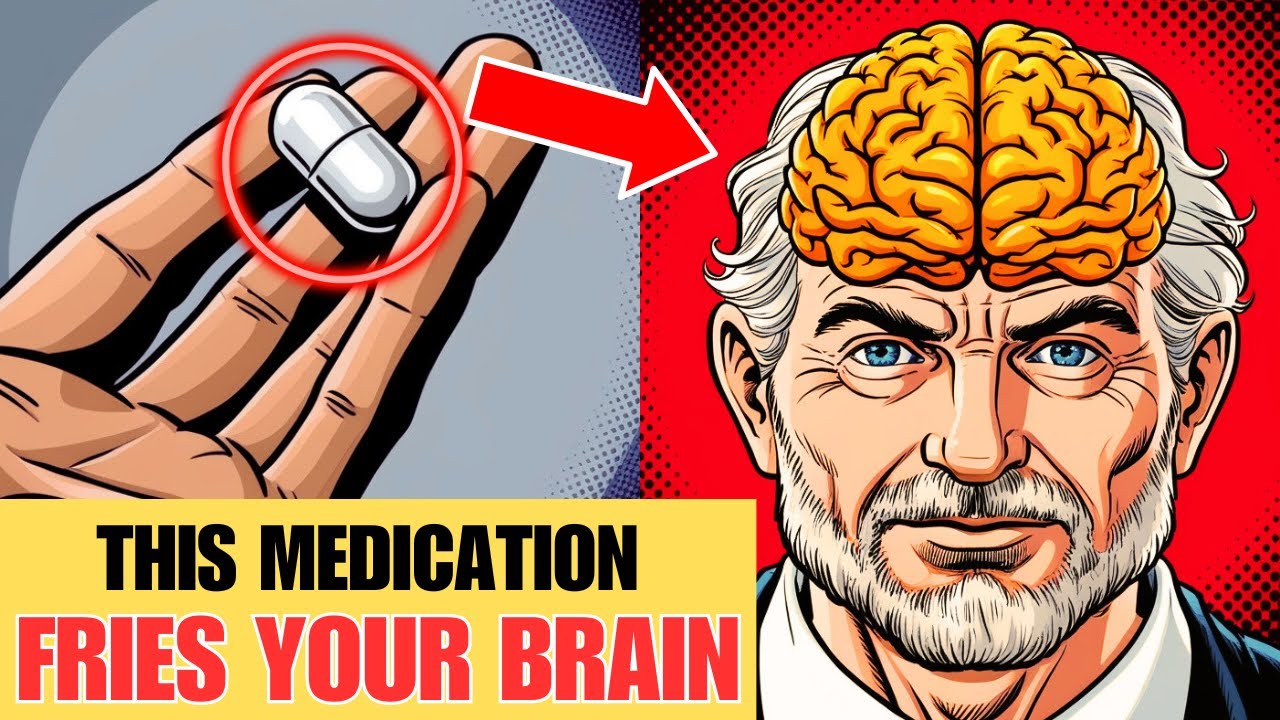MEDICAMENTOS ANTIDEPRESSIVOS - O QUE TODO DENTISTA PRECISA SABER | Pamela Peres
Summary
TLDRThis video focuses on the side effects and drug interactions of antidepressants, particularly for healthcare professionals working with patients who use these medications. The transcript covers the common types of antidepressants, their effects on the central nervous system, and the potential oral health risks like dry mouth, hypotension, and arrhythmia. It also highlights the importance of understanding drug interactions, particularly with benzodiazepines, vasoconstrictors, and certain antibiotics. The video offers practical tips for managing these patients, such as conducting blood tests and collaborating with physicians when sedation or invasive procedures are required.
Takeaways
- 😀 Antidepressants are not only for depression, but also for treating mood disorders, cognitive issues, anxiety, and substance abuse problems.
- 😀 The most common types of antidepressants include tricyclic antidepressants (TCAs), monoamine oxidase inhibitors (MAOIs), selective serotonin reuptake inhibitors (SSRIs), serotonin-norepinephrine reuptake inhibitors (SNRIs), and bupropion.
- 😀 Antidepressants work by regulating neurotransmitters in the brain, influencing mood, sadness, and happiness.
- 😀 Side effects of antidepressants can include dry mouth (xerostomia), hypotension, arrhythmias, and changes in blood tests, such as lowered white blood cell count or anemia.
- 😀 Dental professionals should monitor patients on antidepressants for oral health issues like dry mouth, which increases the risk of periodontal disease, caries, and gingivitis.
- 😀 Blood tests (hemogram) should be requested for patients on antidepressants, especially if undergoing invasive procedures, to check for anemia or platelet reduction.
- 😀 Antidepressants may interact with other drugs, including benzodiazepines, barbiturates, antihistamines, and vasoconstrictors, leading to potentially dangerous side effects.
- 😀 When using vasoconstrictors in dental procedures, limit their use with patients on antidepressants, especially when combined with certain medications like epinephrine.
- 😀 Interactions with medications such as benzodiazepines and vasoconstrictors can enhance the sedative effects, leading to central nervous system depression.
- 😀 Mobile apps and online resources are available to check for potential drug interactions, helping practitioners make informed decisions about medication safety.
- 😀 If sedation is necessary for patients on antidepressants, consult with the prescribing physician for guidance on the safest medication options.
Q & A
What are antidepressants commonly used for?
-Antidepressants are primarily used to treat mood disorders such as depression, bipolar syndrome, anxiety, and somatoform disorders. They are also used in patients with substance abuse problems, including those addicted to alcohol, nicotine, and stimulants like cocaine and amphetamines.
Are antidepressants only prescribed for depression?
-No, antidepressants are not only prescribed for depression. They are used for a variety of mood disorders, including bipolar syndrome, anxiety, and even in patients with chronic pain where the cause of the pain is unclear.
What are the main types of antidepressants mentioned in the script?
-The main types of antidepressants mentioned are tricyclic antidepressants (TCAs), monoamine oxidase inhibitors (MAOIs), selective serotonin reuptake inhibitors (SSRIs), serotonin-norepinephrine reuptake inhibitors (SNRIs), and bupropion.
What is the main action of antidepressants on the central nervous system?
-Antidepressants act on the central nervous system by regulating neurotransmitters such as serotonin and norepinephrine, which influence mood. They help balance the levels of these chemicals to improve mood and emotional stability.
What are the common side effects of antidepressant medications?
-Common side effects include dry mouth (xerostomia), hypotension (low blood pressure), orthostatic hypotension (blood pressure drop upon standing), arrhythmia (irregular heartbeats), and blood abnormalities such as leukopenia (low white blood cell count), anemia (low hemoglobin), and thrombocytopenia (low platelet count).
How can antidepressant medications affect dental procedures?
-Patients using antidepressants may be at higher risk for oral health issues, including periodontal disease and cavities, due to dry mouth (xerostomia). Additionally, certain blood abnormalities (such as low platelet count) may increase bleeding risk during invasive dental procedures.
Which blood tests should be monitored in patients using antidepressants?
-It is recommended to monitor a patient's hemogram, specifically looking at leukocyte count, hemoglobin levels, and platelet count. This is particularly important before invasive procedures to assess the patient's risk for infections and bleeding.
What are the potential drug interactions with antidepressants?
-Antidepressants can interact with several types of medications. Significant interactions include those with barbiturates and benzodiazepines, which can increase sedation, and with antihistamines, which can heighten sedation effects. Vasoconstrictors, such as epinephrine in local anesthetics, can also interact with antidepressants, leading to potential central nervous system depression.
What is the danger of combining antidepressants with benzodiazepines or barbiturates?
-Combining antidepressants with benzodiazepines or barbiturates can increase the risk of sedation and central nervous system depression. This interaction can lead to excessive drowsiness, confusion, or even respiratory depression in extreme cases.
How should vasoconstrictors like epinephrine be used with patients on antidepressants?
-When treating patients on antidepressants with local anesthesia, caution should be used with vasoconstrictors like epinephrine. It is recommended to limit the amount used to reduce the risk of exacerbating central nervous system depression. If more invasive procedures are necessary, other precautions should be considered to minimize risks.
Outlines

Dieser Bereich ist nur für Premium-Benutzer verfügbar. Bitte führen Sie ein Upgrade durch, um auf diesen Abschnitt zuzugreifen.
Upgrade durchführenMindmap

Dieser Bereich ist nur für Premium-Benutzer verfügbar. Bitte führen Sie ein Upgrade durch, um auf diesen Abschnitt zuzugreifen.
Upgrade durchführenKeywords

Dieser Bereich ist nur für Premium-Benutzer verfügbar. Bitte führen Sie ein Upgrade durch, um auf diesen Abschnitt zuzugreifen.
Upgrade durchführenHighlights

Dieser Bereich ist nur für Premium-Benutzer verfügbar. Bitte führen Sie ein Upgrade durch, um auf diesen Abschnitt zuzugreifen.
Upgrade durchführenTranscripts

Dieser Bereich ist nur für Premium-Benutzer verfügbar. Bitte führen Sie ein Upgrade durch, um auf diesen Abschnitt zuzugreifen.
Upgrade durchführenWeitere ähnliche Videos ansehen

Apa itu Interaksi Obat? | mengenal interaksi obat

AULA DE FARMACOLOGIA - Interações medicamentosas com Anti-inflamatórios não esteroidais (AINES)

Module 3.Anxiety: Medications

WARNING! 8 Medications That Can Cause Severe Dementia (Must Know Risks!)

Latihan Soal Ujian Masuk Apoteker dan UKMPPAI | Materi Kardiovaskular Part 1

Como são feitos os remédios antidepressivos? E quais são os efeitos no nosso organismo?
5.0 / 5 (0 votes)
